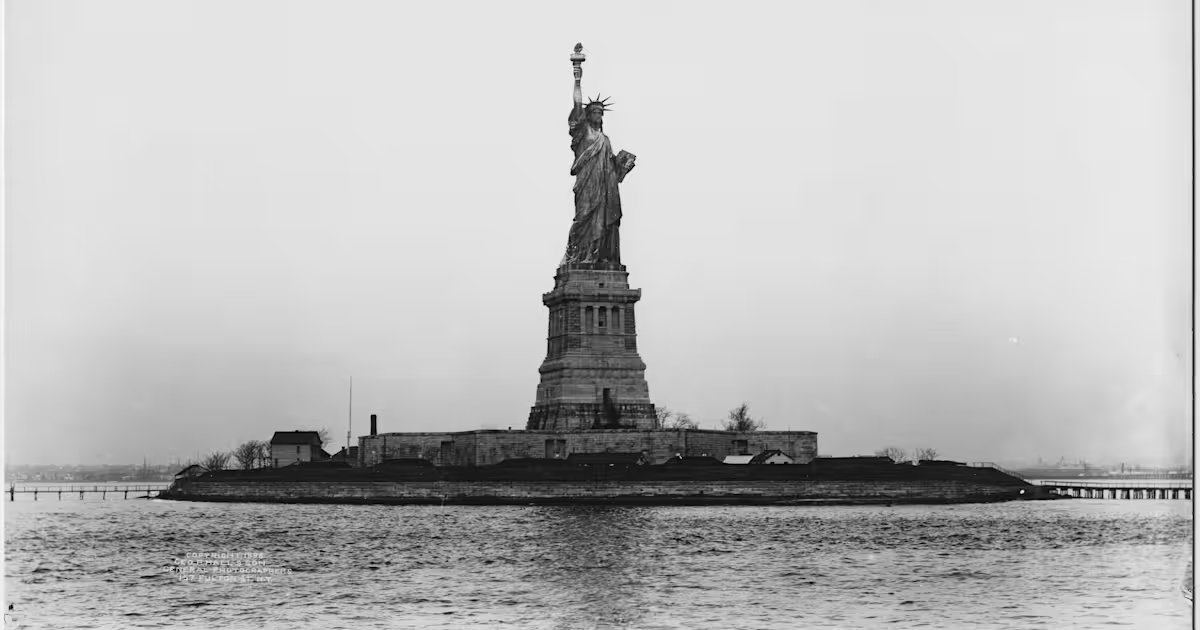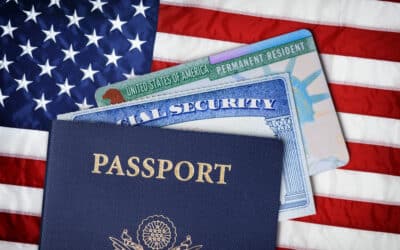Immigration. Despite other headline-grabbing news, this issue persists.
How could it not? Trump’s masked goon squad, ICE (Immigration and Customs Enforcement), abducts peaceful people off the streets, from their workplaces, and from Home Depot parking lots, then shuttles them without due process to detention centers, including the ominously named Alligator Alcatraz, and prepares to deport them to third countries deficient, shall we say, in their devotion to individual rights. Many detainees have been unable to contact family and attorneys. Even American citizens have been swept up, subjecting them to the trauma of confinement until they demonstrate that they “belong here.” Trump’s quota of 3,000 detainees per day creates the most perverse of incentives for ICE agents. He reportedly has berated ICE because the arrest numbers are too low.
Need I say that this should not be happening in America, and Americans should not forget that it is happening? Fortunately, some glimmers of hope penetrate the dark clouds. The latest to come to my attention is the reported bad morale among ICE agents. Apparently, they don’t enjoy “arresting gardeners.” Why don’t they quit?
Moreover, recent polls indicate that a growing number of Americans dislike how Trump is handling immigration. Naively, they seem surprised that Trump did not confine his hunt to real criminals (that is, murderers, muggers, rapists, thieves, etc.) but is going after people who hold jobs, live normal lives, behave neighborly, and bother no one. (And, alas, pay taxes.) We’re also seeing federal district judges smack down ICE raids and Trump’s autocratic bid to rewrite the Constitution on birthright citizenship. (See the 14th Amendment.)
For example, ABC reported the other day, “A Los Angeles federal judge issued a pair of temporary restraining orders today limiting the ability of U.S. immigration-enforcement agents to detain people absent reasonable suspicion beyond merely their race, ethnicity or occupation, while also requiring that detainees be given access to legal counsel.” (Emphasis added.) No profiling, that is. It’s a start. Yet it still might be good policy for people with accents and darker skin tones to avoid Home Depot parking lots, car washes, restaurant kitchens, and farms.
We can hope that future generations will look back on this terror with shock and shame.
I’ve heard it said that libertarians should favor government control of immigration in principle (and so such roundups) because free movement constitutes “forced integration.” Specifically, it has been said that laws against discrimination in employment, housing, and public accommodations violate our freedom of association and, hence, a property owner’s right to exclude immigrants, among others. Freedom of association, of course, should be respected, and it logically includes the freedom not to associate, or the freedom to exclude, even when it takes irrational and bigoted forms. Freedom must be defended—even when it is exercised obnoxiously. Absolutely true.
But would open borders increase coercion in America by prohibiting discrimination and exclusion? Before I answer that question, let me pose another one. If all the antidiscrimination laws were repealed tomorrow, would the libertarian restrictionists withdraw their opposition to open borders? I think not.
As a practical matter, free immigration under today’s laws would not effectively compel individuals to associate. Open-borders champion Bryan Caplan explains why in his newest collection of blog posts, Essays on Laissez Faire (“Association, Exclusion, Liberty, and the Status Quo”).
Caplan writes,
One of my conservative friends keeps telling me that, “The right to associate is the right to exclude.” As a libertarian, I agree. But the subtext of his slogan is that libertarians focus far too much on government regulations that abridge the freedom of association—and far too little on government regulations that abridge the freedom of exclusion. His claim, in fact, is that the only feasible way to protect the freedom to exclude is to restrict the freedom to associate. Since discrimination laws make it impossible for voluntary contracts to keep foreigners out of a neighborhood, for example, it’s OK for immigration laws to keep foreigners out of the country entirely.
Some otherwise-libertarians make the same argument. Since we are not free to exclude foreigners from our personal affairs, we must not let them in.
That prompts Caplan’s question: “To what extent do existing policies that restrict freedom of association and exclusion actually bind? In other words, how different would the modern U.S. look if people were free to live, work, and play anywhere if and only if the property owner consented?” He responds:
Let’s start with exclusion. Many existing laws restrict the right to refuse to hire workers and serve customers. In real estate, restrictive covenants and home owners’ associations are common, but if you try to use them for racial exclusion, courts won’t enforce them. Single-gender clubs also occasionally face lawsuits.
I’m against all of these limitations on the right to exclude, but how much do they actually change behavior in the modern U.S.?
His answer: “Only slightly, for a long list of reasons.”
Among his reasons are: businesses want money too badly to exclude people without good cause; most people frown on exclusion and would feel funny about a business that practiced it; and alternative methods of exclusion are available, such as “high prices…, dress codes…, and educational credentials.” Where there’s a will, there’s a way.
“I don’t deny, he says, “that laws against exclusion occasionally have important effects. But their main effect in the modern U.S. economy isn’t to reduce exclusion, but to pressure businesses” to find workarounds.
So much for the consequences of mostly paper violations of freedom of exclusion. What about the consequences of government limits on free association, that is, immigration control? Remember, border restrictions prevent Americans from selling to, renting to, buying from, employing, befriending, dating, and marrying would-be immigrants.
“Indeed,” Caplan responds, “they [border restrictions] probably have a bigger effect than all other regulations combined.”
It’s simple. Billions of people around the world live on a few dollars a day or less. Under open borders, tens of millions of them would migrate to the U.S. every year. Remember: Even if you’re an illiterate peasant from Bangladesh, credit markets and/or employers would be happy to front the money for airfare.
This immigration flow wouldn’t stabilize until real estate prices massively increased and low-skilled wages drastically declined. The U.S. population could easily increase by 50% in a decade. New cities would blanket the country. The level of output would skyrocket—and its composition would rapidly change, too. Whether you love this vision or hate it, you can’t deny that free association would radically and rapidly reshape the face of America.
The upshot: “restrictions on the right to associate are massive, and there is enormous pent-up demand to migrate. Hundreds of millions of people want to move here, landlords want to rent to them, employers want to hire them—but the law won’t allow it…. While restrictions on exclusion are occasionally irksome, they rarely ruin lives. Immigration laws, in contrast, usually condemn their victims to life—and often early death—in the Third World.”
Like free trade, free immigration is overwhelmingly win-win.
































